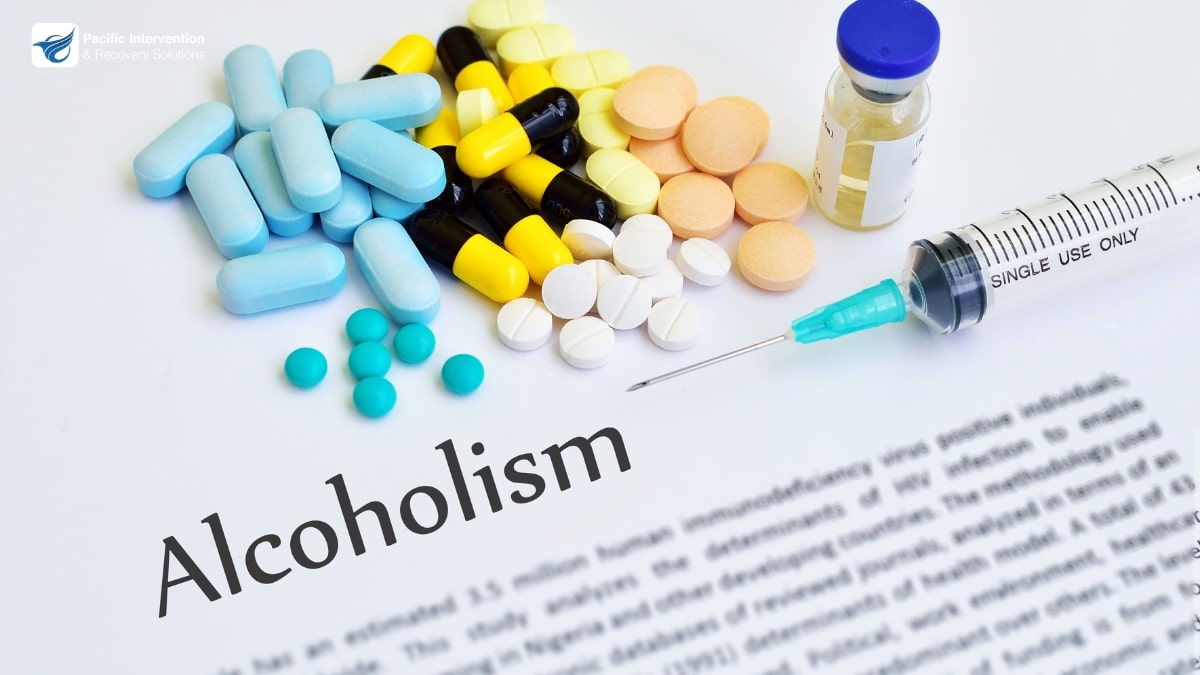Alcohol withdrawal is a condition whereby a person who has been consuming alcohol in large amounts for some time suddenly stops or significantly reduces their intake of alcohol. During this period, the body and mind go through symptoms known as alcohol withdrawal syndrome, which may range from mild to severe conditions that can be life-threatening, like delirium tremens.
That is why supervision during detoxification from alcohol is crucial, for there is some risk involved with it. As the body gets adjusted to the absence of alcohol in the system, it brings about withdrawal symptoms; hence, professional treatment is highly essential for managing the symptoms of withdrawal safely.

What Sparks Alcohol Withdrawal?
The causes of alcohol withdrawal lie in the brain’s response to long-term drinking. It is a depressant to the system, and the brain will make more stimulating neurotransmitters to counteract its effects over time. Because of this heightened activity, when alcohol consumption suddenly stops, the brain remains in that state, which now leads to withdrawal symptoms such as anxiety and tremors as the body readjusts without alcohol.
Signs of Alcohol Withdrawal
The effects of alcohol withdrawal can be put in the category of common or severe.
Common symptoms
Common symptoms experienced during withdrawal include:
- nausea
- vomiting
- headaches
- abdominal pain
- high temperature or chills
- tics and tremors
- Irregular or increased heart rate
- excessive sweating
- shaking and shivering
- decreased appetite
- insomnia
- intense cravings for alcohol
Severe symptoms
On the other hand, about 10% of the individuals may show severe symptoms, which can be fatal and include:
- Fever
- fast breathing
- severe sweating
- mental confusion
- seizures and hallucinations
These intense symptoms are dangerous to health and require prompt medical care.

Phases of Alcohol Withdrawal
There are primarily three phases of alcohol withdrawal, distinguished by the symptoms and time duration.
- First phase: Mild symptoms set in within six hours after the person has stopped drinking and can continue for a week. They are anxiety, tremors, nausea, headaches, and sleep disturbances.
- Second phase: This period begins as early as the first 48 hours but can go on for up to a week; it can also entail other severe complications like fits and a racing heartbeat, peaking between 24-72 hours from the last drink.
- Third phase: It is felt within 48 to 72 hours since the last drink. The symptoms are at their most severe and include delirium tremens, where one sees things that are not there and feels confused; major fits can last for as long as 2-3 days but continue for up to a week.
While the majority recover from withdrawal within a week, some individuals go through a probable fourth stage, post-acute withdrawal syndrome, or PAWS. This is characterized by persistent mood problems and sleep disturbance that may persist for 6 months to 2 years.
The severity of symptoms and time length depend on factors such as how heavily they were drinking before quitting and their general health.
Top Factors that Affect Alcohol Withdrawal
The onset of alcohol withdrawal syndrome differs significantly from individual to individual, so it is challenging to foresee who will experience withdrawal symptoms and their intensity. Several factors have been identified which, when present, can increase the risk of alcohol withdrawal, including:
- Heavy Alcohol Use: The daily heavy consumption of large quantities of alcohol considerably increases the risk of alcohol withdrawal.
- Age: Patients 65 years or older are at risk of developing withdrawal symptoms.
- Past History of Withdrawal: A history of either DTs or alcohol withdrawal seizures raises the risk of developing symptoms in the future.
- Co-occurring Medical Disorders: Medical or psychiatric conditions can make withdrawal difficult. Increase its intensity.
- Dehydration and Electrolyte Imbalance: These medical factors can aggravate the presentation of withdrawal syndrome.
- Brain Lesions and Liver Function Abnormalities: Any underlying brain lesions or liver impairments may expose the patient to a higher risk during the withdrawal phase.
- Medications and Substance Use: Recent intake of substances or specific medications can influence the intensity of the withdrawal symptoms.
- Intensity of Alcohol Use: The risk of alcohol withdrawal is greater in those with a more prolonged history of alcohol dependence, high blood alcohol levels, and the severity of withdrawal symptoms when they first began. These factors may be used to identify those at risk and to determine the type of interventions and treatments to be employed.

Medical Treatment of Alcohol Withdrawal
The treatment for alcohol withdrawal would involve the management of symptoms, prevention of complications, and providing rehabilitation resources for alcohol use disorder. The treatment will vary depending on the severity of withdrawal.
Mild to Moderate Alcohol Withdrawal
If the intensity is low, a quiet room with dim lighting, decreased social contact, decent nutrition, and generous fluid intake may suffice. Sometimes, doctors might prescribe carbamazepine or gabapentin. For moderate cases, the main treatments involve benzos like chlordiazepoxide, diazepam, or lorazepam to avoid fits and delirium tremens. Further medications are given in cases where complications still occur; examples are beta-blockers or clonidine for hypertension and IV fluids to prevent dehydration and electrolyte imbalance.
Severe or Complicated Alcohol Withdrawal
The bad cases mandate hospitalization, usually in an ICU, for monitoring and treatment. Treatment involves the use of long-acting benzos like IV diazepam or lorazepam, along with therapy for all associated medical complications.
Outpatient vs. Inpatient Treatment
Mild to moderate symptoms are managed on an outpatient basis; the patient comes to the facility for follow-up. Those with more acute symptoms of withdrawal, moderate to severe, will need inpatient treatment. It allows doctors to monitor a patient’s condition closely and provide IV fluids as needed.
Counseling
Experts advise counselling so that individuals are better equipped to deal with the feelings and emotions involved in quitting alcohol and also to prepare for life without it.
Overall, proper medical care can reduce or eliminate the symptoms of alcohol withdrawal, allowing one to concentrate on the recovery phase.

Role of Medical Supervision in Alcohol Withdrawal
Always detox from alcohol under the supervision of health professionals in a hospital or detox facility. In the hospital or detox facility, continuous support is maintained. This setting is particularly relevant to those who are at risk of developing complications such as DTs from their alcohol addiction. Long-term alcohol use, previous withdrawal experiences, seizures, or infections are hazardous.
Detoxing from alcohol under medical supervision is iessentialfor various reasons:
- Medical Care: Attending healthcare professionals could treat severe withdrawal symptoms that come in when the person is highly physiologically and psychologically dependent on alcohol.
- Controlled Environment: In a detox setting, one can easily fight triggers, cravings, and other environmental factors in a supportive and recovery-oriented environment.
- Focus on Treatment: The environment provides a framework for patients to focus on their recovery without external pressures and stressors.
Neutrally, upon completing a detox, it is essential to be admitted to an inpatient treatment center that is furnished with recovery skills to reduce the risks of relapse. Another criterion for recovery from addiction is to break the cycle of isolation that happens with addiction. Loved ones can encourage the addicted person to seek professional help.
Summary
Alcohol withdrawal is a syndrome that develops in an individual who has been consuming large amounts of alcohol over a long period and then stops or reduces their alcohol intake. This may vary from mild to disastrous, characterized by nausea, headaches, feelings of anxiety, tremors, and sleeplessness; however, in some terrible cases, hallucinations, seizures, and delirium tremens can occur. Withdrawal basically occurs in three stages: mild symptoms in the first 6 hours, severe symptoms within 24-72 hours upon cessation, and the most acute phase, which may last 48-72 hours.
Therefore, this process should be performed in a professional medical treatment center to ensure the safe management of withdrawal symptoms.
FAQs
1. What happens in your body when you stop drinking alcohol?
Alcohol consumption stops, and your body begins to clean itself. The early withdrawal period can be marked by anxiety, tremors, irritability, inability to sleep, and nausea.
2. Which is the most dangerous alcohol withdrawal symptom?
This would be DTs, causing convulsions, hallucinations, and severe confusion, and it is possibly life-threatening.
3. What is one of the first signs of withdrawal from alcohol?
The first significant sign of alcohol withdrawal is usually anxiety. Other symptoms during the early stage include tremors, sweating, and irritability.
4. What is considered a heavy drinker?
A heavy drinker is usually a person who consumes over 14 drinks per week for men and over seven drinks per week for women.
5. Can damage from alcohol be reversed?
Indeed, some alcohol damage is reversible, especially if identified early. The liver is regenerative and can heal itself. Changes in mental and physical health can come when an individual stops drinking. However, severe damage, like cirrhosis, may be permanent.



